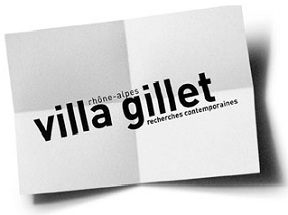The Words of the Flesh
Born in 1979, Wendy Delorme is a French writer, translator, and a teacher of Media Studies at the Sorbonne.
Performer, lesbian porn films actress and LGBT rights militant, she also goes under the names, among others, of Wendy Babybitch and Klaus Engel, as a member of companies such as the Cabaret des filles de joie, of Kisses Cause Trouble, of Drag King Fem Show, and of Queer X Show.
“Only a woman could limit her efforts to convey her impressions,
her impressions usually being sufficient in themselves,
and making up for what is always superficial in them,
by a charm of incomparable sweetness and delicate grace.”[1]
People call us “women artists”, but they never say “men artists”; they say “lesbian writer” but never “heterosexual writer”; they say “erotic literature” and “porn movies”, but never “non-sexual literature” and “non-explicit movies”.
Because in the eyes of society, being female still forestalls being creative. Because the flesh colors words, provides an interpretive lens to those who receive them; because a woman’s first name on a book jacket already situates the text, even before its words have started to speak.
Because we always separate body from intellect, high from low, profane from sacred. Because we do not think of head and ass together; there are always the noble words, and the impure ones.
* * * * * * * * *
There is no such thing as women’s writing, feminine eroticism or sensibility, because there are no women in literature.
There are people who write from the place that they have been assigned. Some of them with rage so as to get away from it; others, by contrast, who follow the path that has been mapped out for us. There are those who would rather stay on the margin of that space, away from the feminine, off-centered, but are then dragged back to it, kicking and screaming. Their words are women's words, words that are situated. The masculine remains the universal reference. Feminine words stay in the realm of the singular, indexed to the gender of who said them.
These words that name the world. That draw the framework for our thoughts, define our experience, establish our power to act in society.
“Discourse is not simply that which translates struggles or systems of domination, but is the thing for which and by which there is struggle, discourse is the power which is to be seized."[2]”
As far as the power of words is concerned, we know its virtue and dangers. The degree to which language is mastered determines who is dominant and who is dominated.
We also know the arbitrariness of the signifiers, but we do not always manage to be detached from them. Because language, like an image or anything that signifies, is colonized. The breast signifies the woman. What is elongated and full is the man. The hollow, the curve, that is femininity – which outlines itself in the hollow of a language in which the masculine always call for agreement everything in the plural, whereas the feminine only does so when genders do not mix.
And we still have to justify our will to create, to think, to stay “among ourselves”. To those who claim the right to penetrate our festivals, our concerts and the few spaces that we have saved for ourselves at the margins of maternity, of the couple, of work, of domestic chores, and of the fashion pages of magazines telling us how to dress.
We must still repeat what others have said before us, without ever growing weary of it.
There are no women, but fictions of femininity, myths embroidered on our bodies by the meanings that have been hung on them.
There is the biological reality, which is not a destiny, and a sociological reality: a numerically larger population yet symbolically a minority.
There are beautiful images: the curve of a back in a low cut dress, impeccable brushings, diamond rivière necklaces and cleavage, maiden dresses, exotic turbans, fresh or sweet perfumes, lightened skins, and pretty lingerie to wrap everything in.
A woman is a well-trained monkey. A never-attained ideal and a supersignified vagina.
“The reader may now ask how I define womanliness or where I draw the line between
genuine womanliness and the 'masquerade'. My suggestion is not, however, that there is any such difference; whether radical or superficial. They are the same thing."[3]
An assignation.
“Sit up straight. Nice girls don’t talk like that. There are plenty more fish in the sea. No pain no gain. Loose five pounds by the summer. Hot swimsuits! Our gourmet light recipes. Indulge! Make the first move. What type of lover are you? My hair in the summer. No more orange peel skin in the winter. The post-holiday diet. Look ten years younger. Retro-chic. Chic Lolitas. I show my legs! Sewing for flat tummies. Zero blemish complexion. The little faults they fall for. Sex after 50. Sex after 40. Sex after 30. Redesign the oval of your face. Skincare lift and firm. Gentle and wild at the same time. And if tonight, you were the one who decides? Take him to his favorite restaurant. Rebuild your life after divorce. How to live with teenagers. First wrinkles. Firm and perky breasts. A peach-like complexion. Gorgeous hair. Abs and butts: how to tone them up. Because I am worth it.”[4]
Meanwhile, Cinderella, Snow-White, Sleeping Beauty and the Nivea models are forever beautifying themselves.
There is no such thing as inborn rosewater, sweetness and finer feelings growing at the same time as our ovaries.
There is no “lightness, clear freshness, easy elegance that are the essential traits of a woman’s vision."[5]
There is the scraping of our imagination and the shrinking of our words, inversely proportional to the degree of sophistication of our washing machines (for which we pose in sexy dresses and hairdos in the ads).
There are hookers and crackpots, unworthy mothers and escapees.
A woman, she sweats, she stinks, she burps and farts, she eats with her fingers, she scratches her anus, she spits when no one watches her, she chops heads.
Screwed to her pedestal, the eternal feminine is bored to death.
“Long before our birth, we have been named, designated, identified – and very early on we have also been insulted, abused, wounded by words. What can we do? How can we deal with words that we have not chosen, the words that make us and that we use, the words people use when they talk to us, the words that upset us sometimes, often, in fact?"[6]
Born female, assigned to be a woman. I have words to say it, and to re-signify it.
Even if. I am threatened with the trap of labeling. The risk of seeing the theme of femaleness “subsuming the initial intention of creating a literary work”. Because the text “which harbors such a theme sees one of its part taken for the whole, one of the constitutive elements of the text taken for the whole text and the book becoming a symbol, a manifesto. When this happens, the text stops operating at the literary level, it is an object of discredit in the sense that one ceases to consider it in relation to equivalent texts. It becomes a text with a social theme and draws attention to a social problem. When this happens to a text, it is diverted from is original goal which is to change the textual reality in which it is inscribed. […] Taken as a symbol or adopted by a political group, the text loses its polysemy; it becomes univocal. This loss of meaning and of textual reality prevents the text from accomplishing the only political operation it can possibly accomplish, that is, to insert in the textual fabric of the times, through literature, what is most dear to the self.”[7]
And yet we still write from that place, the one we have been assigned. With our guts and our brains, we knit words like we used to knit lace, we put up barricades of consonants, shoot vowels in bursts, mess up grammar rules, deliver manifestos, sweep up the floor of the discourse on femininity. Out of our wits, deranged, not always very nice to look at. We make sure to read and feed on the words of the women who came before us. In every language, flood tides of pages wash the shores of the binary, corrode the reefs of received ideas about “the woman”, repeat, tirelessly.
And sometimes it is easier to write books raging against the state of the world, the violence done to women, ordinary sexism, or the system that makes us helpful, gentle, thin, nice and all done up, than to examine our individual experience and to take on the responsibility of escaping it. Only yesterday, people called me mademoiselle. Only yesterday, I was saying “my love” to the one who diminished me, I was making excuses for the one who filled my vagina while draining my power, my individuality, who was hitting my sisters and raping them. Only yesterday, I was trying to be docile in the name of love and femininity. Grandiose with words, paper Amazon, miserable. Because words can’t do everything. There are centuries of conditioning fossilized deep in our bones that we must dig out, our bodies and minds that must be decolonized from the inside, ways of telling who we are that must be reinvented.
The mother, the saint, and the whore are still looking for other words so that they can exist.
Cette ressource a été publiée dans le cadre de la quatrième saison du festival "Walls and Bridges", organisé par la Villa Gillet, qui s'est tenu à New York du 11 au 20 octobre 2012.
Notes
[1] T. Wyzewa, “Peintres d’hier et d’aujourd’hui”, Paris, 1903, p. 215. (in Marie-Jo Bonnet, “Contestations des signes du masculine dans l’art du XXe siècle”, Genres et Générations, 2009).
[2] Michel Foucault, L’Ordre du discours, [Engl. The Order of Discourse], Flammarion, Paris.
[3] Joan Rivière, “Womanliness as Mascarade”, The International Journal of Psychoanalysis (IJPA), vol. 10 (1929).
[4] Maman, Marie-Claire, Marie-France, Elle, Femme Actuelle, Madame Figaro, Diva, Votre Beauté, Jeune et Jolie, L’Oréal.
[5] Théodore Wyzewa, “Peintres d’hier et d’aujourd’hui”, Paris, 1903, p. 215.
[6] Judith Butler, “Le Pouvoir des mots. Politique du performatif”, Editions Amsterdam, Paris, 2004, foreword “Une provocation” by Charlotte Nordmann and Jérôme Vidal, p.9.
[7] Monique Wittig, Prologue to the French edition of La Passion by Djuna Barnes, Flammarion, Paris: 1982.
Pour citer cette ressource :
Wendy Delorme, The Words of the Flesh, La Clé des Langues [en ligne], Lyon, ENS de LYON/DGESCO (ISSN 2107-7029), décembre 2012. Consulté le 27/01/2026. URL: https://cle.ens-lyon.fr/anglais/litterature/entretiens-et-textes-inedits/the-words-of-the-flesh



 Activer le mode zen
Activer le mode zen![[title-image]1332154741636[/title-image] all rights reserved](https://cle.ens-lyon.fr/anglais/images/delorme_1355232218964-jpg)



